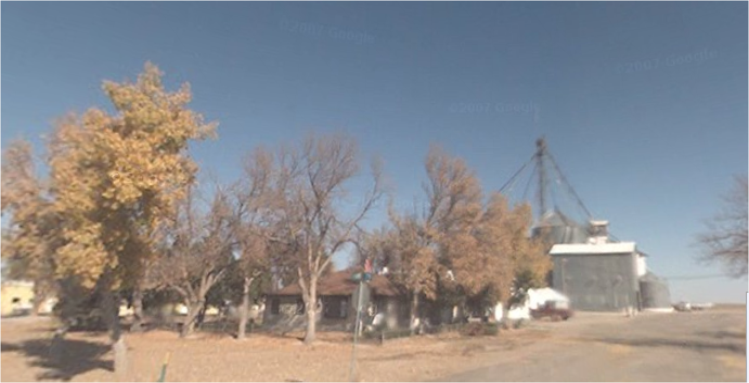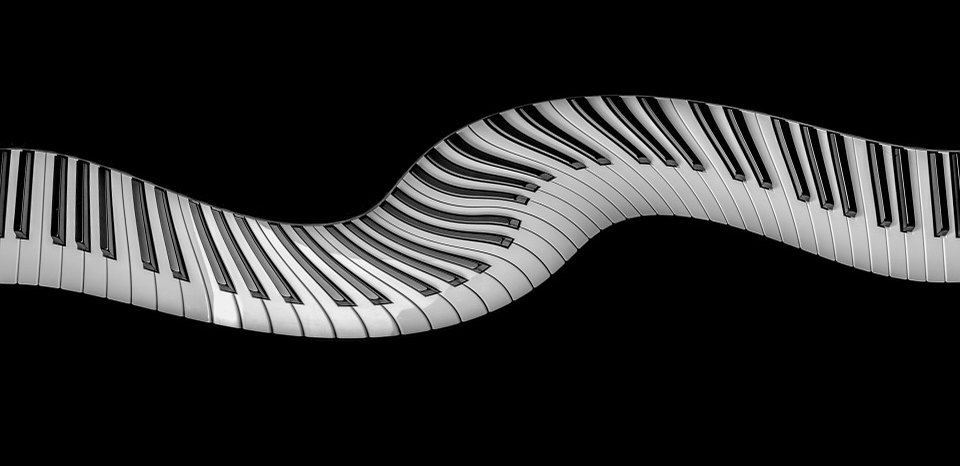Charles met Steve not long after meeting Edie. One evening Charles was walking by the Mary Reed Building and heard Mozart’s “Rondo alla Turca” being played faster than he had ever heard it before. Curious, he found the piano practice room and stood at the door watching Steve tearing up the keyboard. Steve finished the piece, looked around, and saw Charles watching.
“Wow,” Charles said. “You have some real chops!”
“Naw. I got short fingers and can barely span an octave.”
“Well, you make up for it with speed and fire.” Charles played bass in a jazz band on campus. He had thought their keyboardist was pretty talented, but Steve blew him away.
“Thanks. Look, you’re not gonna turn me in, are you?” Steve turned sideways on the piano bench, leaning forward as if ready to bolt. His blond hair sprung from his head in tight, swept-back waves, as if he’d put his finger in a socket. The hair, a scruffy beard, a hand-rolled cigarette, huge engineer boots, and worn, dirty clothes conveyed a portrait of a derelict.
“What? No, no. I don’t care,” Charles remarked. “I guess that means you’re not a student here,” He was trying to determine how old this guy was—he looked old as the hills, but his eyes were a youthful teary blue.
“Used to be. Long time ago. Long story,” Steve said, shifting off the bench. “Well, I guess I better be moving on.” He hiked up his jeans and headed toward the door.
“No, no. Wait,” Charles said, moving toward Steve to catch his elbow. Steve yanked his arm away and whirled to face Charles with a wary look in his eyes.
“Whaddaya doin’?” Steve looked ready to bolt.
“Look, look, uh, I’m in this jazz band, and, well, why don’t I buy you a beer and let’s talk.”
“Where?”
“Over at the Stadium Inn. It’s not far. Couple blocks.”
Like a wary junkyard dog, Steve followed Charles from the room and across the campus, trailing him down Evans Avenue, always a few paces behind.
Once ensconced in a raggedy booth with a pitcher between them, Charles asked what Steve had meant about the long story.
Bit by bit, Steve told the story of his childhood as a musical prodigy in Bennett, Colorado, out in the dusty plains east of Denver.

“I was one of those kids who started playing at three or four, without no lessons,” he said, simply. “You know, dime a dozen,” he shrugged his shoulders and ran his fingers through his wild hair. “Always came real easy to me.”
Steve eventually got a music scholarship and went to DU as a 16-year-old, a bit intimidated by the busy city and older classmates. But by the time he finished sophomore year, he realized that his fingers were too short to ever be an outstanding musician. So, he quit and got a job driving a semi. After eight years, he’d saved enough for a down payment on his own semi-tractor. Then, on a run out near Mesquite, Utah, the engine blew, requiring a hundred-thousand-dollar repair. After a few conversations with his insurance company and the bank that held the loan, Steve flipped the keys into the glove box and told the bank to come pick up their truck. His credit ruined, he worked for a while for a moving company doing household moves.
With a couple of beers in him, Steve relaxed a bit and told Charles about how every time he moved a house that had a piano, he would sit down and play a complicated Mozart or Beethoven piece, sitting there in his grubby moving clothes with his dingy long hair and cigarette hanging from his mouth. This invariably caused the homeowners to rush from wherever they were to gape at this apparent bum wringing beautiful music out of their piano.
Sorry, he’d say, and go off to move a bureau.
With his guard down, Steve was sardonically funny. “Hey,” he said. “Did you hear about the kid who says to his mother, ‘Mom, when I grow up, I’d like to be a musician.’ She replies, ‘Well, honey, you know you can’t do both.’”
Charles laughed and Steve, now emboldened, cranked out a few more jokes in rapid fire.
“How do you make musicians complain? Pay them. What do you call a guitar player without a girlfriend? Homeless. What do you get when you drop a piano into a mine shaft? A Flat Miner. What’s the difference between a pianist and God? God doesn’t think he’s a pianist. I think that’s my favorite one.”
“You’ve got a real talent there . . . for piano,” Charles said, laughing. “Look, we ought to get together sometime and jam.”
“Well, I’d like to, but I haven’t got a piano or even a permanent address.”
“We can play at Mary Reed. My band practices there all the time, after hours. As far as a place goes, you can crash at my house tonight. And you need a job?” Steve nodded. “Well, I do some pickup work with a moving company myself. The guy is always needing humpers. I’ll hook you up.”
“Dude, you just met me. Why you doin’ all this stuff for me?”
“I dunno. I just think a guy who can play like you should play.”
Charles was as good as his word. He’d moved to a three-bedroom house with two roommates at the beginning of the semester, and Steve bunked in the basement for a while. He even got a permanent gig at the moving company. After one of Charles’s roommates complained and decided to leave, Steve took the empty room and moved a few personal items from his folks’ basement back in Bennett. It was evident to Charles that Steve hadn’t had a real home for some time.
Edie was not at all thrilled by Steve’s residence at Charles’s place. Even though they were not yet living together, a bone of contention that caused many arguments, Edie was often quite jealous of Charles’s friends, especially if they came over to the house while she was there. Charles had observed that she had problems being around more than one or two people at a time. When Charles got tickets for a concert—George Harrison and Ravi Shankar at the Denver Coliseum—Edie tried to put a brave face on, but once through the turnstiles, she turned and bolted back outside.
“Edie!” Charles yelled, unsure what to do, since he was already inside the venue. “What’s wrong?” Edie said, “I . . . can’t. I . . . just can’t. I’ll grab a cab and go home. Enjoy yourself.” With that, she ran around the corner. Charles was torn: the chance to see a Beatle versus his loyalty to his girlfriend. He turned and walked inside to find his seat.
While Steve was living at Charles’s place, the first couple of times Edie came over, she spent the evening with her eyes fixed on Steve as if looking for that one wrong move that would end her life. She would usually excuse herself early, saying she had a headache, and Charles would have to drive her home. After this happened the second time, Charles asked Edie, “What’s wrong, honey?”
“Nothing. I’m fine. I just have a headache. That grass was shit.”
“You sure that’s all? You were staring at Steve like he was the devil.”
“Well, you gotta admit, he looks skeevy! What do you know about him?”
“Not a ton. He’s a good guy, though.”
“But how do you know? He looks like an ax murderer to me. Or like one of those burnouts from my unit in Nam. He creeps me out.”
“OK, look. I’m pretty sure he’s not an ax murderer, and he’s my friend, so if you don’t want to hang out with him, that’s fine.”
“I don’t. I’m not ever coming over again if he’s there.”
“That could be difficult, since he lives here.”
“You choose,” Edie said with a severe look on her face.
Steve and Charles became quite close, often crewing together on moving jobs. On long distance moves, they talked almost non-stop as the miles churned by. Steve, always wary, eventually opened up and discussed his life after the truck engine blew up.
“I drifted around the West from town to town and job to job. I didn’t really want to become a drifter. I just never found a job I liked as much as driving.”
“Why didn’t you try to get a job with a trucking company, then?”
“Nah, after I bailed on my rig, I had to declare bankruptcy, that ruined my credit, and the question always came up as to what happened. Did I over-rev? Did I go too fast? Use the wrong gears? They always had questions like that, and so that was that. Even though the engine problem had nothing to do with the way I was driving, the truck companies were spooked. After trying a half a dozen places, I decided I needed something different.”
“What about music?”
“Yeah, I did some piano bar gigs, but I don’t really get off on playing standards, top 40 or somebody else’s favorite song. If I ever have to play “My Way” again, I think I’ll just shoot myself.”
“Ah! A drifter with standards!”
Steve, who was driving at the time, shot a look at Charles and looked like he was about to get angry. He obviously thought better of it, and instead made a joke. “I told you. No standards!”
Charles snickered at the pun and relaxed. He’d had Steve go off on him a couple of times and it wasn’t pretty. In a flash, Steve’s face would turn red and taut, the veins would stand out all over his face and neck, and he’d squinch up his eyes and begin jabbing the air with his right index finger, sometimes poking Charles in the chest. It could be extremely scary to be around him when he was pissed, especially if he’d been drinking. Charles had never seen him be violent, but the stuff he’d say when dressing down the object of his rage could wound, and deeply.
Steve continued. “One time, I was playing this horseshit bar in Bumfuck, Kansas, and this guy came up to the piano, right in the middle of the Doobies’ ‘Long Train Running,’ saying that I had the lyrics wrong. Fucker got up in my face—right in the fucking middle of the goddamn song—and yelled, ‘Stop! It ain’t “You know I saw Miss Lucy/Down along the tracks/She must’ve hung Alabama Lee/And she won’t be comin’ back” you turkey! It’s “She lost her home and her family/And she won’t be comin’ back!”’ That totally fucked up my concentration, so I stopped playing and said, ‘What the fuck did you just say?’ The guy, plastered, of course, repeated his spiel. I said, ‘Thank you kindly, sir. Now get the fuck away from me before I tear off your arm, bitch slap you with it, and shove it up your ass.’ He looked at me blankly, and for a second, I thought he was gonna take a shot at me, but he just said, ‘Get it right!’ and turned and lurched back to his seat.”
“That’s hilarious!”
“Well, that’s what you get when you learn a song by ear and don’t buy the sheet music,” Steve said with a wry smile. “I’ve had several people come up, always politely, and always after I’m finished, and correct my misheard lyrics. That asshole was the only one who was rude about it.”
“So, what made you stop playing in bars?”
“Well, the lifestyle sucks. Playing all night, usually just for tips, maybe a meal, and sleeping in the day. I’d rather drive a truck, or move furniture, or even do a shit job like cow stunner.”
“Cow stunner? Do you dress up like a really, really attractive bull?”
“So not funny, dude. No, you take this pneumatic bolt gun, press it against the cow’s skull, between the eyes, and bam! Trigger the gun and a bolt smashes into the cow’s skull. And she’s done.”
Charles was disgusted by the mental picture. “My god, that sounds like a terrible job. How long did you last on that one?”
“Well, I really needed the job, and the pay was OK, but after a month, I started dreaming of ghost cows, I shit you not. Flyin’ ghost cows! That was it for me. I got the hell out of Dodge. Literally. That’s where the gig was.”
Charles tried to stifle a laugh because Steve did not seem to be in the mood. Steve glanced over and gave him the evil eye. “Sorry,” Charles said. “I know it’s not funny. Just incongruous.”
“Yeah, I was a vegetarian for a while after that. Still don’t really eat red meat.” The discussion was clearly depressing Steve, so he decided to lighten the mood a bit. “Hey, you want to hear a cow joke? I think a guy like you would really like this one.”
Charles said, “Sure. Shoot. Um, strike that. Go ahead.”
“What do you call a herd of bulls masturbating?”
“I give up.”
“Beef strokin’ off.” After the tension of the cow discussion, this struck Charles as hilarious, and he laughed his head off.
“Wait a minute. What do you mean ‘a guy like me?’” he asked. Steve just smiled and raised his eyebrows. The two drove for the next half hour without talking.
 Copyright secured by Digiprove © 2020 Michael Ellsworth
Copyright secured by Digiprove © 2020 Michael Ellsworth


